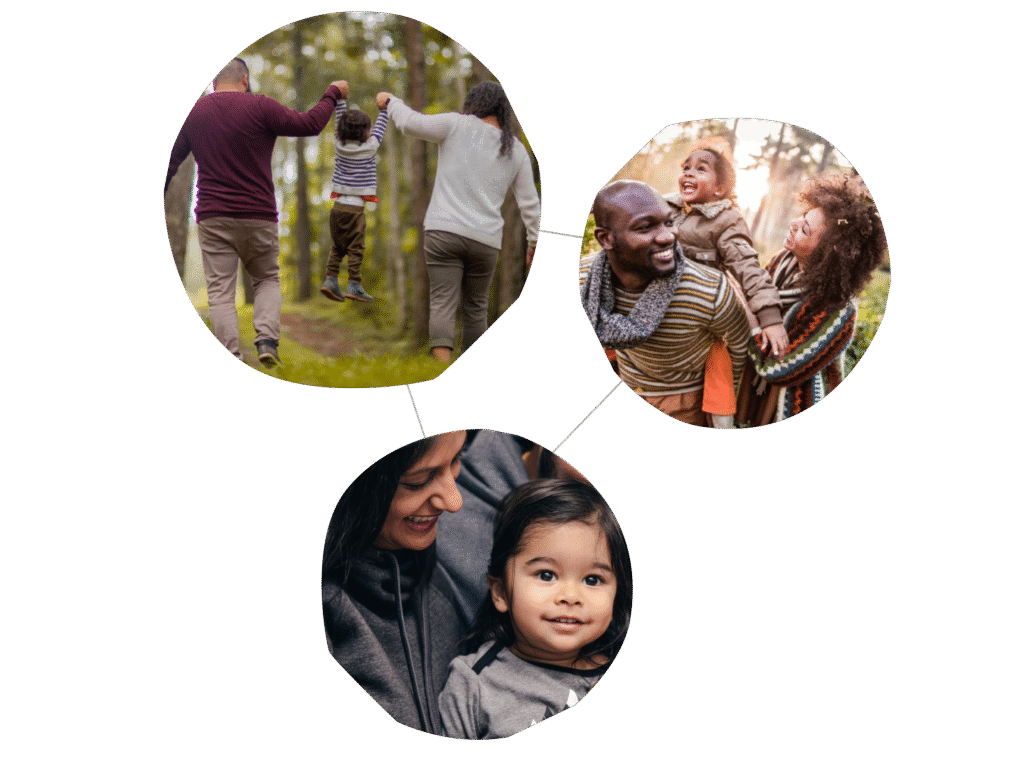
A coordinated state-wide effort to strengthen families and communities through Family Resource Centers (FRCs), which are accessible hubs providing critical support for families.
Learn more: wfsn.org

The Washington Family Support Network strengthens the effectiveness and leadership of FRCs to support children, families and communities by:
Growing the number of FRCs and connecting them to share learning and practice.
Providing professional development and quality assurance.
Coordinating awareness, advocacy and collective action.
Building the Washington Family Support Network:
2021
Family Resource Center definition is passed into state law.
2022
For first time, state budget includes $5 million in funding for Family Resource Centers.
WFSN receives planning grant to lay foundation for the future.
2023
WFSN officially launches and joins National Family Support Network.
State budget includes $2 million to fund 27 FRCs over two years.
Akin launches the national FRC Coalition in support of federal funding for FRCs.
2024
Supplemental state budget includes $1 million to boost funding for FRCs.
2025
WFSN reaches milestone of training more than 40 organizations and over 130 FRC staff members on national standards to-date.
Akin is the Washington state representative for the National Family Support Network, providing standards trainings to Family Resource Centers in the state.
Learn about Family Resource Centers.
Welcoming, accessible hubs
offering services and opportunities to strengthen families and communities.
Designed to be responsive
to local cultures and needs, often at little or no cost, and doors are open to anyone seeking support.
Provide parenting guidance
promote child development, support seniors, encourage leadership in parents, support economic stability, and foster family resilience.
Offer essential assistance
like food, clothing, diapers, transportation, rent and utility aid, job training, and more.
Help families navigate
complex government programs for additional supports.
Family Resource Centers support*
50% reduction in out-of-home placements
63% reduction in child abuse cases
Every $1.00 invested saves $3.85 in child welfare costs
Everyone can benefit from Family Resource Centers.
FRCs do not turn people away and provide resources to anyone who requests them.
While some programs may have specific requirements, FRCs offer general support to all who seek it. Families are guided by Family Navigators for a warm handoff to other resources, not just given a phone number.
74% of FRCs support families impacted by homelessness; 58% support families involved in substance abuse or mental health systems; and 58% support families involved in child welfare.

Thank you for making access to resources easier. I love volunteering at the FRC. I get help – and serve others at the same time.”
We moved here seven years ago and did not know anyone. Since then we have had two children and the Family Center ‘folks’ have become our family.”
I thought the light at the end of the tunnel was a train, and I was fine with meeting it head-on, but now I don’t feel that way. Thank you. Today I woke up, put my pants and boots on, and took my child to school. I feel like me again.”







